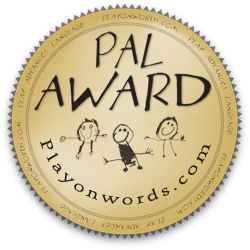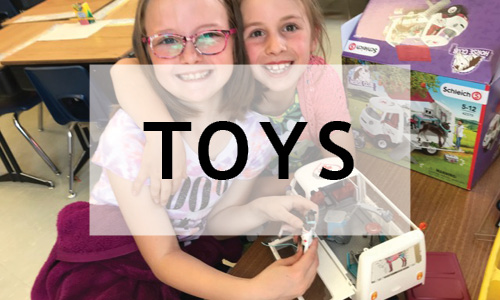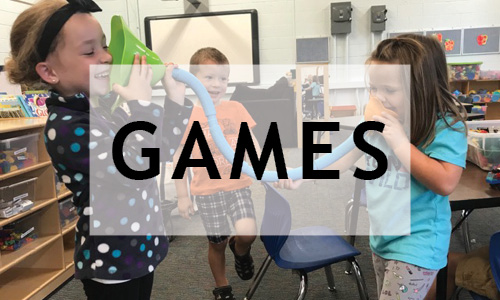 Having just announced my first PAL Awards (Play Advances Language) recognizing toys, games and books that encourage play that advances language, I wanted to share why I created this award.
Having just announced my first PAL Awards (Play Advances Language) recognizing toys, games and books that encourage play that advances language, I wanted to share why I created this award.
Seven years ago, after many years of working as a speech pathologist in the school system, I started my private practice, Play On Words. Traveling from house to house, I have the unique opportunity to see kids in their home play environment. I found myself in playrooms surrounded by engaging, exploratory toys that built certain skills but didn’t encourage talking. I was constantly giving suggestions for toys and books to make their playroom “language” friendly. Add a play kitchen with cookies that Velcro to the cookie sheet, plenty of spatulas, oven mitts and Playdoh to form some original cookies! Put some people on the train table, turn over a box for the ticket office and start selling tickets.
Recently I was asked to consult on a 22 month-old boy who was very quiet, had no words, and just started to string babble together. Professionals and the parents were concerned about autism since he had a delay in social skills also. Glancing around the room, I made a quick assessment of Sam’s toys. Featured in the middle of the room was a large train table with an intricate Thomas the Train set with multiple tracks but no people. There were several shape sorters, blocks and toys that encourage fine motor development. What was missing?
Grabbing my Mary Poppins bag of toys, I brought out some Fisher Price “Little People,” vehicles, slides, table and chairs and a car wash. Delighted, Sam immediately took the bus and began to open and close the door, show interest in the bus driver and then set him up for driving. When I brought out the little table with cups, cookies and a cake on it, he tilted the little boy figure to take a bite, closed his own mouth imitating my “mmmmm” and then offered some cookies to a truck nearby! Not bad for pretend play! We had interaction, open-ended play, some imitation of sounds and symbolic play.
I told the parents that I didn’t see a child with autism but rather a little boy who needed some therapy to encourage talking. My professional opinion was that his language could be encouraged by giving his parents strategies for play to require and reinforce talking and choosing toys that have the qualities to engender pretend play and encourage chat.
Two weeks into therapy, Mom has a “language table” next to the train table filled with little people in cars and trucks, an airport with baggage and a picnic area. Sam is vocalizing a lot more and starting to imitate. Helping parents recognize and choose toys that stimulate language builds kids’ vocabulary and play skills.



